30 Jul 14 | News and features, Poland, Religion and Culture
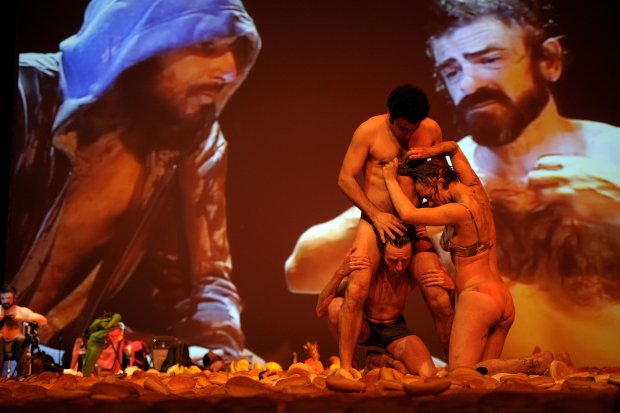
Golgota Picnic was pulled from a the Malta Festival in Poland after religious groups leveled threats.
The Polish theatre scene has been rocked by controversy since late June after the cancellation of Golgota Picnic, a show by the Argentinian theatre maker Rodrigo Garcìa that had previously aroused protest in France.
The play’s supposedly blasphemous content meant that Michał Merczyński, director of the Malta Festival, had pulled the headline show of his festival a week before its scheduled performance. The Malta Festival in Poznań is Poland’s answer to the Edinburgh Festival, and I was visiting with other directors from the Young Vic to learn more about Polish theatre culture. Our experience of the festival was derailed by claims and counter claims of blasphemy and censorship.
Merczyński’s decision to pull the show was based on information that a protest of 50,000 was planned and advice from the police that they could not guarantee the safety of the audience or the performers. The festival’s decision enraged large parts of secular Poland’s cultural elite, who feared that the police warning represented the state’s acquiescence to unofficial censorship by a group of interests centred upon the increasingly powerful Catholic church.
In reaction to the cancellation, there was a proliferation of protest screenings and staged readings of Golgota Picnic in theatres across Poland, some of which were variously picketed by a loose coalition of Catholics, neo-nazis and football hooligans. At the protest screening my group attended, at TR Warzsawa in Warsaw, these three groups all appeared to be embarrassed by each other. They prayed together and held placards warning that “Poland, motherland of Saint John-Paul II must not be a latrine for the trashes of the blasphemer, of the scoffers, of the traitors, of the barbarian and pseudo-artists”.
The Young Vic directors were jostled as we attempted to get in to the theatre and through the double cordon — first the protesters trying to stop us getting into the theatre, and then the police holding back the protesters. In the end we climbed over a low fence around a corner to get in and the police quickly bundled us into the building.
It’s important to say that this was much more exciting than it was scary. Here was evidence that theatre matters: people threatening hostility, if not quite violence, in response to an artwork. As far as I could make out from the DVD, Golgota Picnic (screened in Spanish with Polish subtitles) was a considered and beautiful meditation on the body and on Christ’s body in particular. Although it included a scene where a woman playing Jesus sculpted her gelled hair over another person’s genitalia, I’ve certainly seen more blasphemous plays. The crowd outside were fairly audible in their hymns and their chants, but — in the end, the protesters were defeated by the length of a piece of theatre. When we emerged two and a half hours later, they had given up and gone home.
The cancellation of Golgota Picnic left the Malta Festival deflated, but it felt as if these protests might be a powerful shot in the arm for Polish theatre culture in general. Several people we met were excited by the possibilities of the networks created and issues raised in the fight against religious censorship. Polish theatre provided a central political role in the end years of communism, and then lost its way only to be reinvented at the end of the nineties as a means to interrogate more universal themes in the formally explosive theatre of Gzegorz Jarzyna, Krzystof Warlikowski and Jan Klata, directors who still dominate the scene. It appears that Polish theatre is ripe for a new generation to redefine what theatre means.
As an outsider, this culture war looked complex and unhappy. Of course I was inside the theatre rather than on the street with a rosary, but it was clear that all the theatre people we met were well educated and well heeled. The Catholic protesters were not, and they felt like a demographic who had been left behind by the neo-liberalism that has replaced communism. It’s hardly surprising that these people are angry to see that “they are mocking us”, as one man complained to us on the steps of TR Warszawa.
It’s worrying to encounter theatre censorship in the EU, and artists should be free to present their work. At the same time, theatre institutions have a responsibility to ensure each piece of work finds its audience in the most productive way possible. With Golgota Picnic, the Malta Festival imported a show that had already caused protests elsewhere. Their marketing presented it as sexily controversial, and when this spectacularly backfired they cancelled the performance. Artists should shock and offend, but theatre makers and producers have to tread thoughtfully to ensure that the presentation of powerful work doesn’t play into the hands of those who would censor it.
Jeff James’s visit to Poland was supported by the Adam Mickiewicz Institute, the Young Vic and the Jerwood Charitable Foundation.
This article was posted on July 30, 2014 at indexoncensorship.org
30 Jul 14 | Europe and Central Asia, European Union, News and features, United Kingdom

The British House of Lords has slammed the recent “right to be forgotten” ruling by the court of justice of the European Union, deeming it “unworkable” and “wrong in principle”.
The Lords’ Home Affairs, Health and Education EU Sub-Committee stated in a report on the ruling, published Wednesday, that: “It ignores the effect on smaller search engines which, unlike Google, may not have the resources to consider individually large numbers of requests for the deletion of links.”
The committee added that: “It is wrong in principle to leave to search engines the task of deciding many thousands of individual cases against criteria as vague as ‘particular reasons, such as the role played by the data subject in public life’. We emphasise again the likelihood that different search engines would come to different and conflicting conclusions on a request for deletion of links.”
The ruling from May this year forces search engines, like Google, to remove links to articles found to be outdated or irrelevant at the request of individuals, even if the information in them is true and factual and without the original source material being altered. Following this, Google introduced a removal form which received some 70,000 requests within two months.
The Lords committee recommends, among other things, that the “government should persevere in their stated intention of ensuring that the Regulation no longer includes any provision on the lines of the Commission’s ‘right to be forgotten'”.
Index on Censorship has repeatedly spoken out against the ruling, stating that it “violates the fundamental principles of freedom of expression“, is “a retrograde move that misunderstands the role and responsibility of search engines and the wider internet” and “a blunt instrument ruling that opens the door for widespread censorship and the whitewashing of the past”.
This article was posted on July 30, 2014 at indexoncensorship.org
29 Jul 14 | Asia and Pacific, News and features, Pakistan
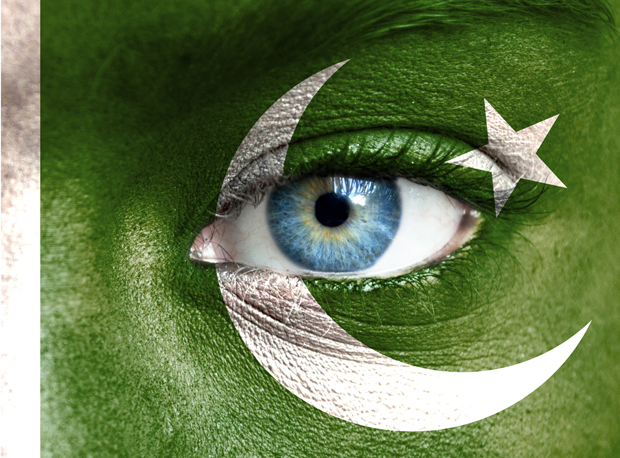
(Image: Aleksandar Mijatovic/Shutterstock)
In March, Pakistani columnist Raza Rumi was injured in a gun attack that killed his driver. Weeks later, Hamid Mir, star journalist of Geo TV, Pakistan’s biggest TV station, was shot six times. Luckily, both survived, and managed to avoid becoming part of a bleak statistic: Since 1992, 30 journalists have been murdered in Pakistan; 28 with impunity.
Against this backdrop, a group of experts on Pakistan and its media came together, under the auspices of the Commonwealth Journalists Association and the Institute of Commonwealth Studies at the University of London to discuss the threats facing the country’s journalists. In a discussion chaired by BBC presenter Owen Bennett Jones, former High Commissioner of Pakistan Wajid Shamsul Hasan, Kiran Hassan of the International Institute of Strategic Studies, BBC Urdu Service Editor Aamer Ahmed Khan, New York Times Pakistan Bureau Chief Declan Walsh and renowned journalist and author Babar Ayaz tried to answer the question, How safe is it to be a journalist in Pakistan?
Censorship in Pakistan used to be straightforward, explained Khan. Certain topics were simply off limits. Today, the situation is more complicated and more confusing. Threats to journalists and press freedom take many different shapes, and come from many different sources, including the government, extremists like the Taliban, the intelligence service ISI and powerful media owners.
There are currently 84 different cases against Geo TV, of which 53 are over blasphemy. You cannot defend yourself against that, said Khan. Ayaz raised a similar point when arguing that extremists are the biggest threat to the media. The government might put a person in jail, but these extremist groups will kill for their beliefs, Ayaz said.
While Geo TV and ISI have long been fighting behind closed doors, the case of Hamid Mir created an “open battlefield”, explained Walsh, who was expelled from Pakistan in May 2013. The station aired reports linking the security services to the attack.
Walsh also brought up the ownership issue within the Pakistani television landscape, which he says has gone from “zero to 100” in the past few years. The country today boasts some 90 TV stations. Editorial control remains with media owners, according to Hassan.
But even journalists themselves did not escape criticism. Sections of the media are responsible for the current situation through irresponsible reporting, said Hasan. Quite a few were “playing with fire” by earlier glorifying the Taliban as peacemakers, he explained. Khan also highlighted corruption within the media as a “novel form of censorship”. However, as Khan pointed out, it is difficult for the Pakistani media to be responsible, without enabling them to be responsible. Most of the information that effects people’s lives is under strict control by authorities, he said.
Hassan, however, argued that there has been some progress. Journalists, and by extension the threats they face, are more visible and garner more attention today. She also pointed out that despite part closures, all Pakistan’s TV stations are still running. There was some talk of the role of media regulation in improving the situation, and Hassan said she had hopes for Pembra, the Pakistan Electronic Media Regularity Authority.
Yet, the overall conclusion was that Pakistan is not a safe place to be a journalist — illustrated well by Walsh explaining how, for the first time since he’s covered Pakistan, The New York Times recently had to use a pseudonym to protect their reporter on the ground.
Hasan summed it up: “The establishment doesn’t want the media to be as free as it can be.”
This article was published on July 29, 2014 at indexoncensorship.org
29 Jul 14 | Draw the Line, Press Releases
Index on Censorship was invited to join a meeting of the Lewisham Young Advisers to talk about our Draw the Line programme and discuss “Can art or journalism ever be terrorism?” and how the right to free speech affects every area of our lives.
The group dove straight into discussions of how, as a society, we should all have the right to free speech, but by voicing your opinions or beliefs there is the risk off offending others, so where do you draw the line? Another example offered by the group was exercising your right to free speech through voting and how non-voters can’t complain about a government if they don’t exercise their right to vote in elections.
The debate swiftly moved into this month’s Draw the Line topic, “Can Art or Journalism ever be terrorism?” The group mostly agreed that a piece of art of a piece of journalism could not be considered terrorism, but raised the question “what defines terrorism?” If it just included an act of violence in pursuit of political ideals then it couldn’t be, but at the same time wasn’t a film or a piece of writing capable of inciting hatred? And couldn’t this lead to acts of destruction? The group suggested that although this was true that it was more likely that this person already held these ideas or at least had the capacity to be violent.
The discussion showed that there is no easy answer to these questions, but it is important to keep having these debates and continuing the discussion of ideas to hear the different sides of every idea.
Get involved with the debate and let us know what you think about ‘Can art of journalism ever be terrorism?’ by tweeting using the hashtag #IndexDrawtheLine.
Lewisham’s Young Advisers are a group of young people who are interested in politics or getting involved in the community. Young advisers have a direct involvement in the process of determining council grant allocation to youth service initiatives, experiencing some of the real complexities of political decision-making and public service delivery.
28 Jul 14 | Awards, News and features, Rwanda, Tanzania, Uganda
Playwright David Cecil was nominated for an Index on Censorship Freedom of Expression Arts Award 2014 after Ugandan authorities deported him from the country for producing a “pro-gay” play in 2013. Determined to continue his work in the Africa, Cecil is now focusing his attention on film production and education in East Africa. With one film school already set up in Uganda, he spoke to Index about his hopes to expand the project to Rwanda and Tanzania, why he believes film in Africa is going to take off in a big way over the coming years and how the situation for LGBT people in Uganda has deteriorated over recent months.
25 Jul 14 | Mapping Media Freedom, Montenegro, News and features
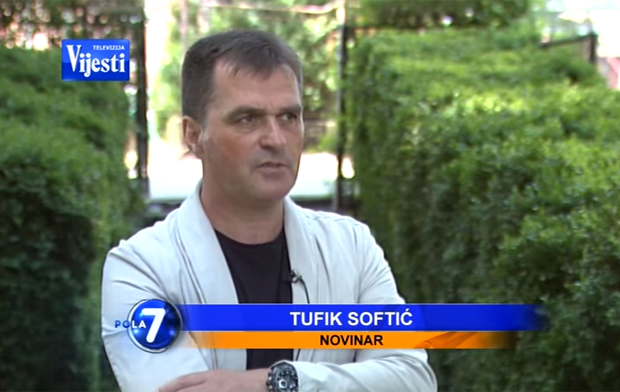
Seven years after the brutal attack that nearly took the life of journalist Tufik Softic, Montenegrin police detained two men suspected of involvement of his attempted murder. For media unions and observers, the detentions were long overdue, but emblematic of the atmosphere of impunity in Montenegro.
According to police, the men — VL and IA — were arrested in Budva on 17 July and charged with attempted murder in the 2007 attack on Softic, a reporter for the opposition daily newspaper Vijesti. After questioning by the state prosecutor, who confiscated their passports, the men were released the same day. Minister of Interior Rasko Konjevic also issued a statement on the case.
In November 2007, Softic was brutally beaten in front of his home by two hooded assailants wielding baseball bats. Then in August 2013, an explosive device was thrown into the yard of Softic’s family home. The journalist has been provided constant police security since February 2014.
OSCE Representative on Freedom of the Media Dunja Mijatovic welcomed the arrest of the two suspects for the attack on Softic. She also urged, “authorities of Montenegro to persist until all attacks on journalists, especially the murder of Dusko Jovanovic in 2004 are resolved and the perpetrators and masterminds are brought to justice”.
Journalists, the Media Union and NGOs emphasize that the atmosphere of impunity that has been created in Montenegro concerning attacks on journalists is the biggest threat to media freedom. The groups put the responsibility for the climate on authorities.
NGO Human Rights Action (HRA) highlighted the perilous state of journalism in their report Prosecution of Attacks on Journalists in Montenegro. The HRA outlined 30 cases of threats, violence and assassinations of journalists as well as attacks on media property between May 2004 and January 2014.
“Most of these attacks have not been clarified to date. In most cases certain patterns can be observed, for example: victims are the media or individuals willing to criticize the government or organized crime,” said the report.
One-third of all the incidents happened in the last year. For HRA, this is clear evidence that the atmosphere of impunity is escalating and inviting more attacks on journalists.
“Such an atmosphere of impunity threatens journalists in particular, who are often victims of unresolved attacks. If the state treats these attacks passively, it becomes responsible for the suppression of freedom of speech, the rule of law and democracy”, the group reported.
The European Parliament issued a resolution on the 2013 progress report on Montenegro expressed “grave concern about the increase in verbal and physical intimidation of journalists,” and “calls for all threats and attacks against journalists to be adequately investigated and prosecuted, including unresolved previous offences.”
UN Special Rapporteur on the promotion and protection of the right to freedom of opinion and expression, Frank La Rue, undertook an official visit to Montenegro from 11 to 17 June 2013. In the report that followed, he recommended that “the identification of responsibilities in all cases of violence and intimidation against journalists must be achieved without delay, so perpetrators are brought to justice.”
That police needed seven years to question any suspects in the brutal assault on Softic “could be used as an indicator of effectiveness and dedication of the police in resolving these cases”, underlined Marijana Camovic, chief of the Montenegrin Media Union. “Yes”, she said, “we welcomed the detention of two suspects, but let’s have in mind that this is just one of the many cases that need to be resolved.”
For the Media Union, it is a common occurrence for criminals and people with political ties to threaten, berate and attack journalists. “Nowadays journalism is the most dangerous profession in Montenegro and that is why we need extra protection,” said Camovic.
Human Rights Action has proposed the introduction of two new and amendments to criminal offenses: “Grave types of murder” and “Serious bodily injury” with the aim of increased protection for journalists in performing professional duties. In the same manner, the Media Union is advocating for similar amendments so journalists could have protection under the law on a par with police officers.
In December 2013, the Montenegrin government established a commission for monitoring actions of authorities in the investigation of cases of attacks on journalists. As a result of their work, in January 2014, Dusko Markovic, a deputy prime minister and justice minister, was questioned because it was alleged that he withheld information on the murder of Dusko Jovanovic, the editor-in-chief of the opposition newspaper Dan, in 2004. Montenegrin media reported that Markovic was the head of the secret service at the time.
More reports from Montenegro via mediafreedom.ushahidi.com
Arson attack on vehicles owned by Montenegrin daily
Politician and journalist discredit TV station
This article was posted on July 25, 2014 at indexoncensorship.org
25 Jul 14 | Brazil, Events, United Kingdom
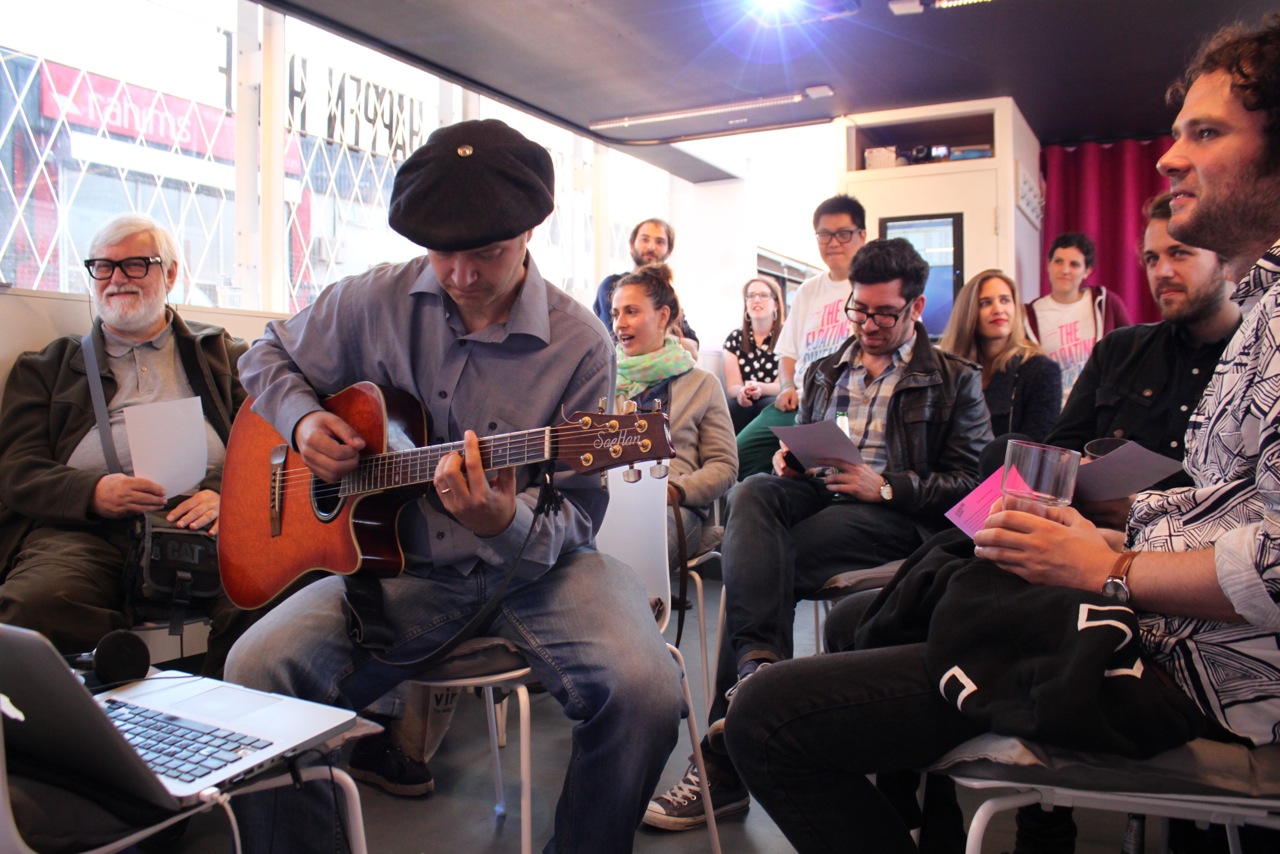
(Photo: Nina Pope for Contra Band)
Contra Band is a new commission, by Leah Lovett, which brings together musicians and audiences from Brazil and the UK for an experimental live performance of songs censored in both countries between 1964-1985. These dates mark the duration of the military dictatorship in Brazil
Contra Band Tours – Saturday 26th July (6-7pm & 8-9pm)
Audiences are invited on a floating journey, whilst we connect to a live link up with CASA 24, an artist led venue based in Rio De Janeiro. Musicians in both venues will attempt to learn, play and understand their counter parts censored songs.
Contra Band Talk – 3.30-4.30pm
Artist Leah Lovett will be joined by Julia Farrington and Melody Patry from Index on Censorship for a discussion examining issues of cultural censorship within Brazil, explored in Lovett’s new live performance Contra Band for The Floating Cinema. The talk will take place at Kings Place.
Lovett draws on her experience of collaborating with musicians both in London and Rio de Janeiro, and will share her research into cultural creative strategies which respond to political instability and creative invisibility during the Brazilian military regime. Index on Censorship will examine the current challenges facing online freedom of expression, exploring the country’s growing profile in global internet governance debates and the potential consequence of its domestic internet policies.
Index on Censorship is an international organisation that defends and promotes the rights to freedom of expression. The inspiration of poet Stephen Spender, Index was founded in 1972 to publish the untold stories of dissidents behind the Iron Curtain. Today this organisation fights for free speech, challenging censorship globally whenever and wherever it occurs.
Leah Lovett is an artist and writer currently researching a PhD at the Slade, UCL, with support from the AHRC. Her project investigates the spatial politics of Brazilian theatre director Augusto Boal’s invisible theatre as a means of opening up questions and possibilities for her own performance-based practice.
BOOKING DETAILS
Talk: BOOK HERE Free (booking essential) – 15.30 – 16.30 (taking place at Kings Place)
Tour Tickets: BOOK HERE £5.00; £3.00 conc. – timings 18.00 or 20.00 (on-board The Floating Cinema)
24 Jul 14 | Digital Freedom, News and features, United Kingdom

(Photo: Shutterstock)
Last week, the social web, at one end of its endless, pendulum-like swings between mawkishness and self-righteous fury, discovered a letter from the head teacher at Barrowford primary school, East Lancashire. It was a sweet-natured letter, congratulating students on their exam results and then going on to note all the things exams can’t measure and examiners don’t know:
“The people who create these tests and score them do not know each of you the way your teachers do, the way I hope to, and certainly not the way your families do.
“They do not know that many of you speak two languages. They do not know that you can play a musical instrument or that you can dance or paint a picture. They do not know that your friends count on you to be there for them or that your laughter can brighten the dreariest day.”
…and so on; examiners did not that “know that you have travelled to a really neat place or that you know how to tell a great story ” etc etc etc.
All very sweet sentiments, and new and traditional outlets went crazy for it. The letter went viral, and then the mainstream media, including BBC Radio 4’s The Today Programme, covered the fact the letter had gone viral.
There were a few problems with the well-meaning letter, though. As Toby Young pointed out in the Telegraph, it was incorrect to say the people who “scored” the children’s Key Stage 2 achievements “do not know each of you the way your teachers do”; part of the assessment is done by teachers at the schools.
Meanwhile, children in East Lancashire do not, generally, go to “really neat” places. American kids go to “really neat” places. Barrowford kids might, say, get taken to Turf Moor to see a Burnley match, or more likely at this time of year, Blackpool Pleasure Beach, and it would be proper good.
The reason for these disparities was simple: large sections of the letter had been lifted from elsewhere; apparently, it’s been circulating in various forms since originally being written by a Mary Ginley of Massachusetts in 1999.
When various people (including me) pointed this out on Twitter, they were seen as being somewhere between the Grinch and ISIS in terms of spoilsport misanthropy. “So what if it wasn’t original?” we were told. The sentiment was correct, and that’s what was important.
It may seem unduly curmudgeonly to complain about a rural school’s end of term letter, but the point of interest here is how quickly it spread, and how blase people have been about the basics of who actually wrote it.
Consider another example: after Algeria went out of the World Cup, it was widely rumoured on Facebook, Twitter and other networks that the team had donated its fee for the tournament to “Gaza”; not the ICRC or MSF, or even Hamas, just vague “Gaza”.
It felt good, and it felt nice, and it was plainly not true. But no one really cared whether it was true or not because (a) Algeria had been quite an enjoyable team to watch, b) people wanted to think someone was doing something about Gaza, and c) well, the Algerian team were Muslims, so they’re probably concerned about Palestine (I never said this was a well-thought out view).
This pattern was repeated when German Muslim player Mesut Ozil was similarly reported to have donated his fee to “Gaza” after his team’s eventual World Cup triumph. The news spread like wildfire, because people wanted it to be true. It wasn’t. Ozil had already pledged his cash to projects in Brazil.
The Gaza conflict has provided more of these moments: a picture of thousands of Orthodox Jewish men protesting in New York is widely touted as a pro-Palestine protest; it is not. It is taken from a protest against Israeli conscription laws in March; a meme circulates quoting actor Robert De Niro comparing Israel to a mad dog; there is no evidence that he has ever said this.
But these things, like the school letter, circulate because they feel right and they make us feel good.
As the old line says “a lie will go round the world while truth is pulling its boots on”. The speed with which we can now move information around surely compels us to be even more mindful of this fact. And yet, what’s the answer? Social media thrives on the instantaneous; slowing it down could be severely damaging to the positive aspects of it. Draconian Chinese laws on “spreading rumours” are reported to have severely affected the number of interactions on social media. In democracies, it would likely be impossible to prevent feelgood-but-false memes, as well as straighforward propaganda, to spread without a massive crackdown on free expression.
For a long time, the web has demanded that we “become our own editors”, ensuring that we take in a broad amount of information rather than merely reading the sites we like on the topics we like, avoiding challenging or new ideas.
But the editorial process must always involve a high level of scepticism; some of the greatest journalistic failures of the past 40 years, such as the Hitler Diaries Hoax, or Piers Morgan’s disastrous publishing of fake pictures of Iraq war abuses in the Daily Mirror, came down to an editor’s and others involved required scepticism being overwhelmed by a story that was simply too good to be true. Disaster ensued.
The same must apply for anyone who thinks themselves vaguely “active” in the political sense on the web. Inaccurate information ultimately damages your cause. So the next time you see a meme on NHS spending, Israel, or whatever it is you care about, think before you tweet: Is this too good to be true? Do I have any way of checking this for myself?
This article was published on July 24, 2014 at indexoncensorship.org
24 Jul 14 | Hungary, Mapping Media Freedom, News and features, Politics and Society
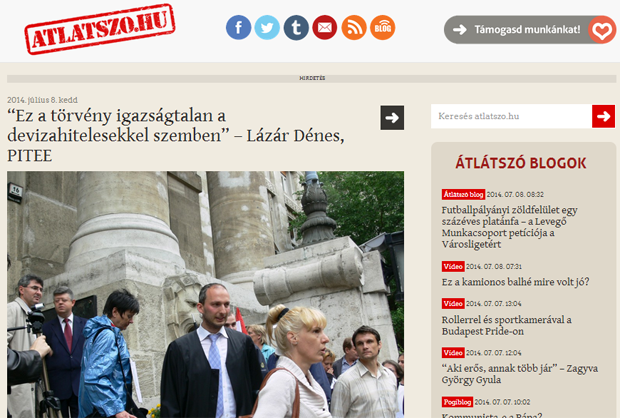
Hungarian NGOs are facing a rough summer: The Government Control Office (KEHI) has launched a series of investigations into grants they received from the Norway Financial Mechanism. Now the Council of Europe’s Commissioner for Human Rights, Nils Muižnieks, has written to János Lázár, Minister of the Prime Minister’s Office to express concern over the situation.
In the letter, Muižnieks told Lázár that he had been informed by several parties that audits were being conducted over the grants. A forthcoming report will further detail the monitoring that Muižnieks was conducting around media freedom in the country. For his part, Lázár has responded to the letter from the COE commissioner.
As Index reported on July 8, the government controls come after a long smear campaign with members of the Fidesz government accusing these NGOs to be proxies for “foreign interests”, and that Norway is using the program to exert direct political influence on Hungary.
“There is panic and uncertainty in the Hungarian civil society. In this respect, the controls are very effective, even if there will be no consequences,” says Tamas Bodoky, editor-in-chief of Atlatszo.hu, an investigative journalism outlet also targeted by the KEHI audit.
Atlatszo.hu decided not to comply with the government inspection, regarding it as unlawful. They say that KEHI is an agency overseeing government financial matters, and does not have the authority to investigate financing for NGOs. However, they have nothing to hide, so they published all relevant records concerning the use of funds on the website of their partner organisation, Asimov Foundation.
A number of NGOs followed Atlatszo’s example, but it is unclear what the repercussions of this decision might be. According to Bodoky, KEHI could freeze their bank accounts, suspend their VAT number, and fine them as well.
It is difficult to portray these NGOs as strongly opposing the Fidesz rule. Some of the organisations receiving grants from the Norway Financial Mechanism have been involved in anti-government protests, but others have fruitful cooperation with the government. The vast majority of grant recipients have no political involvement at all.
Bodoky believes the government controls are a small-time retaliation for the decision of the Norwegian government to suspend the payments from the EEA and Norway Grants. This fund represents the financial contribution of Norway, Iceland and Liechtenstein towards reducing economic and social disparities in the European Economic Area (EEA).
Hungary was set to receive 20 billion euros in the 2014-2020 period from this fund. However, the Hungarian government recently made important changes to the system by which EU and Norway development grants are administered. They did not consult with the donors. As a result the Norwegian government suspended the payments.
This measure did not affect the considerably smaller NGO Fund, operated by a Hungarian consortium of NGOs. The overall objective of this fund is to “strengthen civil society development and enhance contribution to social justice, democracy and sustainable development”.
The programme focuses on projects dealing with the human rights of minorities, good governance, combating racism and xenophobia, combating discrimination, social exclusion, gender inequalities and gender-based violence.
Some members of the NGOs administering the fund appear to have links to Politics Can Be Different (LMP), a small liberal party. Apparently this was the reason why State Secretary Janos Lazar, the “strong man” of the Fidesz government decided to write an open letter to the official representative of the Fund’s donors, Vidar Helgesen, Norway’s Minister of EEA and EU Affairs, accusing the Norway government of intervention into the internal affairs of Hungary.
Deputy State Secretary Nandor Csepreghy said in an interview that the Hungarian government would prefer Norway’s Civil Fund to provide financial support through the Hungarian government, whose “legitimacy comes from society and the voters”. Csepreghy believes that any other scheme can be interpreted as a direct involvement into Hungary’s internal political affairs.
Recent reports from mediafreedom.ushahidi.com:
Hungary: Companies owned by local council abrogate advertising contracts
Hungary: Investigative journalism group says it will not comply with government audit
Hungary: Officials target RTL Klub after critical reports
Hungary: NGO with close ties to Hungarian government will ‘monitor’ media attacks
Hungary: Blogger resigns after political pressure
This article was posted on July 8, 2014 at indexoncensorship.org
21 Jul 14 | Campaigns, Statements
To:
Isabelle Falque-Pierrotin
Chair, Article 29 Working Party
EUROPEAN COMMISSION
B-1049 BRUSSELS
DG Justice
Dear Ms Falque-Pierrotin,
We are writing to express our deep concern over the effects of the so-called Right to be Forgotten ruling, issued by the Court of Justice of the European Union (ECJ) on May 13, 2014.
Since the ruling was issued, Index on Censorship, an international freedom of expression charity, has consistently and repeatedly expressed reservations about the failure of the judgement to include recommendations for oversight mechanisms and provisions that would ensure freedom of expression and information rights, as well as obligations, are balanced with privacy rights. We are disturbed both by the loose wording of the ruling and by recent comments from European information commissioners that appear to suggest that authorities are making a default presumption that – in the majority of cases – privacy rights trump those of free expression and right to information.
Index is concerned that without the rapid introduction of uniform, Europe-wide guidelines from regulators on the implementation of, and oversight process for, all search engines implementing Right to be Forgotten, the system will lead to swathes of information that should be publicly available being hidden from sight. This includes not just serious journalism but also information about, for example, individuals who use comment lines below articles as a form of harassment.
Index calls on Article 29 as a matter of urgency to:
• issue detailed guidance on the types of information that can be considered “irrelevant” by search engines. Simply asking search engines to have a due regard to information that is “in the public interest” is insufficient guidance;
• detail an appropriate mechanism of oversight to ensure that it is possible for data protection or other relevant national and European authorities to examine any search engines’ decision on a Right to be Forgotten request;
• include an appeals mechanism that allows publishers of content who have had links removed to be able to challenge that decision. Index understands the need to balance privacy rights with rights to information and freedom of expression rights. However, we are concerned that the recent actions of the ECJ and data protection authorities has failed to sufficiently taken into account the latter, and we would urge greater consultation with civil society groups on the implementation of this ruling and in the development of future data protection guidelines to ensure that that these rights are protected.
Yours faithfully,
Jodie Ginsberg
CEO, Index on Censorship
Copies to: European information commissioners
Letters from the Society of Editors:
Letter to Isabelle Falque-Pierrotin on the Right to be Forgotten
Letter to the Prime Minister David Cameron on the Right to be Forgotten
21 Jul 14 | About Index, ArtFreedomWales
Why we are doing this programme
We believe that freedom of artistic expression lies at the heart of artistic practice and the debate about it needs to be kept live and abreast of changes in society.
Index on Censorship’s UK Programme
“Freedom of expression is not self-perpetuating, but needs to be maintained by the constant vigilance of those who care about it.” — Michael Scammell – Index on Censorship Magazine 1972
Support for artistic freedom allows the artist to push boundaries, to say what is not being said, imagine the world differently, act as critic and speak truth to power. Artistic freedom of expression thrives on risk and experimentation, embracing controversy and diversity of opinion and the debate and dialogue triggered by challenging art.
You only have to think of what happens to artists in societies that are unfree for this to be thrown into sharp relief.
But even in countries where freedoms are upheld as a core principle, artistic freedoms are all too easily eroded by social, political and sometimes legal constraints. ArtFreedomWales is part of a wider Index programme that is taking stock of the support for free expression across the arts sector in the UK, and asking is the space for artistic freedom of expression expanding or shrinking?
Last year we held a major conference at the Southbank Centre in London- Taking the Offensive which identified and debated the social, political or legal controls that shape the cultural landscape. Nicholas Serota, Director Tate, gave the key note speech and the conference discussed the triggers for and the prevalence of self-censorship across our cultural organisations and institutions. It also discussed how the sector could come together to reinforce support for artistic freedom in general and when controversy breaks in particular. (Read the report here.) In May, we held a symposium in Belfast exploring these issues in Northern Ireland.
We are currently running a programme called ArtFreedomWales — a series of online events culminating in a day-long conference in the autumn to explore the state of artistic freedom and practice in Wales. Supported by Arts Council Wales, the programme will bring together Welsh artists and activists to discuss the issues and begin mapping a plan for action. Watch the first online event here.
21 Jul 14 | Brazil, News and features, Religion and Culture

Journalist and author Luiz Reffato (Photo: Companhia das Letras)
While researching Brazil’s legislation called the biographies’ law, Index on Censorship’s Brazil contibutor Simone Marques spoke to award-winning Brazilian author Luiz Ruffato, whose works include acclaimed novel They Were Many Horses.
Index: By defending the idea of controlling of literary works, such as biographies, wouldn’t some Brazilian artists be executing the role of a censor?
Ruffato: This is a paradoxical subject, because these artists live from the public image they built. People do not buy only a song or a film, people also buy the exposition of this artist. And the moment he becomes a public figure he is no longer a private figure. If this person is no longer a private figure, it is possible that he may have his own life scrutinised. I do not see any problem with that. I think anyone can manage their own life the way they feel like. Whoever wants to write a biography about me can keep calm. They will find absolutely nothing that may dishonour my image. But if they did find something, it would be okay, because I am exposing myself, I am living off that, I am somehow using my public image to make money. Therefore I think that when you move into this public world, you must be aware of that.
I believe it is everyone’s right to know who the people that make the history of their country are, and the artists also make the history of a country — with or without a political standpoint, he is contributing or not contributing to thinking about the country. Therefore I believe it is perfectly reasonable that you know who this person is. That is why I am a little bit shocked, because we must defend freedom under any circumstance; and it is not relative freedom, freedom for me is a universal concept.The freedom we have here appears more like a relative freedom.
We are living a very strange period in Brazil, a moment when the issue of intolerance is really present. This is very curious because we had a military dictatorship, we have a political history of intolerance. And it shocks me that in the exact moment when we are exercising the biggest continued period of democracy, we are at the same time living a moment of absolute intolerance. It is not just a matter of biographies. Politically, any criticism of your actions immediately positions you within a certain ideological bias. It is a binary judgment; it is yes or no. Moreover, life is not yes or no, life is often made up of maybes, and that is why I am shocked because this positioning of intolerance does not take us to a good place.
Index: Where do you notice this type of intolerance?
Ruffato: This intolerance occurs at all levels. For example, in the virtual world. It is the place of intolerant practices, because there people exercise their prejudices and their authoritarian world views, I am shocked, it is absurd.
This positioning against the biographies I think is a bias of intolerance, an authoritarian bias. It is as if you are being placed in specific niches all the time, and I refuse to do that. I try to exercise the freedom that fits me by never having truths — not imposing truths. I defend relative truths. As well as believing that freedom is absolute, I believe truth must be relative. There is only absolute freedom where truths are relative. Where there is absolute truth there is no freedom.
In Brazil, we have a very childish thing, something that children also have , that is of closing our eyes and pretending things have disappeared. I think we have this in our society, you know? It is as if we closed our eyes and that problem did not exist anymore. We have never stopped to discuss our political history, which is a history of dictatorships. For example, the end of the Brazilian dictatorship did not happen because there was a revolution: it was an agreement between the politicians and the military that included a wide amnesty, general and unrestricted. In other words, nobody killed nobody, nobody did anything to anyone, let us play forward. Obviously, this deeply marks our society. We are an extremely authoritarian and intolerant society.
We are xenophobic, we are racists, we are sexists, we are homophobic, and this shines well on the internet. And we are hypocrites as well. We are not a bit cordial. We kill: domestic violence in Brazil is among the highest in the world, and this happens inside our homes; urban violence in Brazil is among the highest in the world. No, we are not a bit cordial. We are only cordial when people agree with us. When somebody disagrees with us, our reaction is extremely violent. But the Brazilian does not disagree in front of the person. We are used to give a pat on the back and, when the person leaves, we stick the knife in their back. Nobody admits that they do it. People do things, or do not do things, and do not have the guts to tell you. We do not have the culture of divergence, of debate. When we diverge, we always react in a hidden way, because disagreement is something unacceptable, it is terrible.
Index: If the biographies’s law is approved in the senate, we will have, really, more freedom to publish books about people?
Ruffato: This is another problem. I think that where there is an excess of laws, they are meant to be circumvented. The less laws there are, the better, because then you know where you are going. Brazil is a country of lawyers, so you must make many laws so they contradict each other and have loopholes. Particularly, I assume that the biographer is a decent person, that he is an intellectually honest person. Therefore, when an author writes a biography, he will face the biographee as a fallible and susceptible to making wrong decisions human being. The author should have a very well grounded and contextualized story he is telling. If the author is not an honest, decent person, and if the biographee’s family feel somehow offended by the work, then I think it is absolutely correct that they bring an appeal or a lawsuit to force the author to confirm, correct or retract what was written. This is within the norm. We have to protect the biographee, this is indisputable. I think we have to have a legislation that protects the biographee, but that protects him from libel, slander and infamy, not from writing things that were factual and occurred. Because otherwise we will fall into a very curious situation. For example, an author who wants to tell the life story of a president would have to have the subject or his family authorise the biography: what kind of history will we tell? It is a government biography.
So, how will we tell the history of Brazil? A history where the ills of Brazil cannot be told? A history, for example, where there is no extermination of indigenous. So we run a very serious risk of failing to tell a more decent history, with its contradictions, because history is also not a truth, but it is a narrative, and biographies also help to compose these narratives. I think this is very dangerous.
Our laws are made to be circumvented and are not clear. I think that this [biographies’ law] should not be an issue. They exist, people live, and some people have importance beyond a moment. So, I think that that should not even be a matter of discussion. But as it is, I do not keep calm, things can end up taking an unexpected turn into intolerance. There will always be gaps because the laws are not clear. And it’s a huge pretension for someone to want to take care of their image as if it was something personal, of their own. It is so stupid! You may describe your father, and each sibling will tell the story a different way, no one will even have the same father or mother. It is a silly idea to think that someone can have an authorised biography because that biography tells “the truth”. I am very afraid of societies that have truths. I do not trust them, because a society that has absolute truths must be very sick, there is something very wrong with it.
Index: Have you ever faced any kind of censorship in Brazil?
Ruffato: The book Eles Eram Muitos Cavalos (2001) was adopted in a university of Minas Gerais admission test and later on was “unadopted”. Because the admissions test was of a religious institution, they claimed that there was too much bad language in the book. Yes, the book has some profanity, but they are in a context. There is no curse word just for the sake of being a curse word. It was the only episode about it. And if there was some problem of constraint in a work of mine, I would keep writing anyway. I write for my readers, not to please anyone.
Index: If you could write a biography today, within this context of censorship? Who would?
Ruffato: I would like to do a biography, yes, but of a person who probably will not cause any problems, someone who has been very biographed, which is Machado de Assis. Just to change the focus, there are already many biographies of him. My theory is that he would not have written what he wrote had he not been who he was. He was a person who had a look from the bottom up. It was this gaze that I think determines the type of literature that he wrote. But I’m very interested in writing a fake biography. When you tell someone else’s story, you are telling your own story, as psychoanalysis says. I want to radicalize it, though, creating a character whose biography I would write. It is not a novel. It is a fake biography, in which I would tell the story of the character with many witnesses, with hundreds of interviews, many documents read, but it was all fake. Maybe I get to be sued: it would be an authorized biography “unauthorized”.
This article was published on July 17, 2014 at indexoncensorship.org









